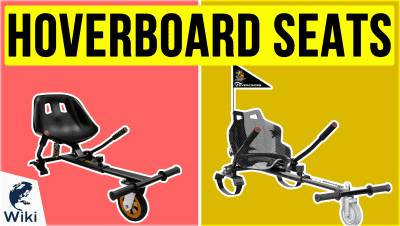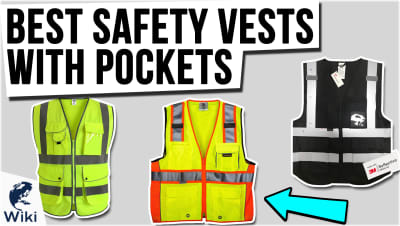7 Organizations Fighting Human Trafficking
The most difficult part of stemming the tide of modern slavery is that most people are unaware of just how close to home it occurs. Even in America, human trafficking is a serious problem, but thankfully there are those working to give a voice to people who have been kept silent for too long. These organizations work in different corners of the globe to bring awareness to this important issue. This video was made with Ezvid Wikimaker.
7 Organizations Working To Stop Human Trafficking
| Name | Headquarters |
|---|---|
| BEST: Businesses Ending Slavery and Trafficking | Seattle, WA |
| Truckers Against Trafficking | Englewood, CO |
| Coalition to Abolish Slavery and Trafficking (CAST) | Los Angeles, CA |
| Prerana Anti-Trafficking Center | Mumbai, India |
| Chicago Alliance Against Sexual Exploitation | Chicago, IL |
| GenerateHope | San Diego, CA |
| Unseen | Bristol, UK |
Voices of Survivors from CAST LA
Documentaries That Tackle Important Issues
| Title | Director | Subject |
|---|---|---|
| I Am Jane Doe | Mary Mazzio | Chronicles the uphill legal battle fought by survivors of sex trafficking against classified advertising website Backpage.com, and the law that has allowed it to escape accountability |
| Angst | Matt Skerritt, "Panic Attack" VR Experience directed by Stephanie Riggs | Film and virtual reality experience that explores anxiety, featuring candid interviews with kids and young adults who suffer, or have suffered, from anxiety and what they've learned |
| Dark Money | Kimberly Reed | Examines the influence of untraceable corporate money on American elections and elected officials, highlighting the real-life impacts of the Supreme Court's Citizens United decision |
| Minding the Gap | Bing Liu | Showcases three young men who bond together to escape volatile families in their Rust Belt hometown as they face the difficulties of entering adulthood |
| The Most Dangerous Year | Vlada Knowlton | Embattled parents band together to fight for transgender rights |
| Leitis in Waiting (feature length) and Lady Eva (short) | Dean Hamer and Joe Wilson | The former, about a devout Catholic of noble descent who organizes a beauty pageant presided over by a princess; the latter, about a transgender woman on a journey to become her true self in the Kingdom of Tonga |
| Intelligent Lives | Dan Habib | Three pioneering young adults with intellectual disabilities challenge perceptions as they navigate high school, college, and the workforce |
| Heather Booth: Changing the World | Lilly Rivlin | The life of progressive activist and strategist Heather Booth and her political legacy |
| Screenagers | Delaney Ruston | Examines the complicated roles of social media, video games, and the Internet in the lives of young people |
| A Night at the Garden | Marshall Curry | Uses archival footage to expose the often-neglected truth of an American Nazi rally that attracted 20,000 people at Madison Square Garden in 1939 |
| Still Loved | Debbie Howard | Candid interviews with parents who have lost a child, confronting the difficult topic of stillbirth |
The Unseen App
In Depth
Although some may picture slavery as belonging to the distant past, the truth is that even today, millions of people are being forced to work against their will. From those who smuggle immigrants under false pretenses and press them into servitude, to predators who deceive and coerce vulnerable young people into sex work, human traffickers remain a horribly real problem even in the wealthiest nations on Earth. Presented here, in no particular order, are seven groups working to put an end to this dehumanizing practice.
Heading up the list at #1 is BEST: Businesses Ending Slavery and Trafficking. Founded on the belief that private sector organizations are uniquely positioned to intervene, this nonprofit raises awareness and engages in consultation, equipping employers and workers to make a difference. Arguing that internal protocols to prevent trafficking are not only ethical, but also sound business practice, they work with companies to train employees in techniques for recognizing exploitation, and stepping in to help victims.
Pointing out the many industries that wind up entangled in trafficking activities, such as hospitality, shipping, and transportation, BEST encourages companies to take action to prevent damage to their brands and avoid the risk of their employees or services being implicated. In addition to offering courses and presentations on prevention, they help victims transition to legitimate employment through their Safe Jobs program. Individuals wishing to support BEST's efforts can donate to their programs, while organizations can sign up to train their employees or make a charitable gift.
In addition to offering courses and presentations on prevention, they help victims transition to legitimate employment through their Safe Jobs program.
Next up at #2 is Truckers Against Trafficking, an organization that works to unite transportation professionals in helping law enforcement to disrupt human trafficking, through recognition and reporting. Recognizing that this industry is a common vector for sexual exploitation, they offer training courses on how to identify and assist victims, as well as working to change the culture that gives rise to the problem. Their Man to Man campaign encourages drivers to see themselves as allies of women seeking freedom.
TAT has been recognized for their impact with an award from the Congressional Victims' Rights Caucus. Their signature programs include the Freedom Drivers Project, a mobile exhibit providing education on sex trafficking to members of the trucking industry and the general public, or their in-depth training program for law enforcement officials. The organization also presents awards to industry partners who have made a difference in the struggle against exploitation. Corporations that want to help can partner with TAT, while individuals can donate to support their work.
Coming in at #3 is the Coalition to Abolish Slavery and Trafficking, a Los Angeles-based nonprofit organization that fights against modern-day slavery, offering services to help survivors recover and advocating for reform. They maintain an emergency hotline for people seeking to escape or report exploitation, social services to assist them in transitioning to independence, and legal help in matters like clearing criminal records or seeking damages.
They maintain an emergency hotline for people seeking to escape or report exploitation, social services to assist them in transitioning to independence, and legal help in matters like clearing criminal records or seeking damages.
A major component of CAST's work involves connecting and empowering survivors of trafficking, supporting them in raising their own voices to call for reforms. The Resilient Voices and National Survivor Network programs bring together people with experience of forced labor, building a national movement to advocate for political and cultural change. CAST also provides a wide range of training programs, educating corporations, government agencies, and community groups on ways to recognize trafficking and assist those victimized. Supporters can get involved through donations, volunteering, or reporting offenders.
Next up at #4 is Prerana Anti-Trafficking Center, a hub for anti-slavery knowledge resources, created by a group working to help women and children in India escape from the cycle of sexual exploitation and poverty. They offer guides to best practices, drawn from their own experience working with vulnerable and marginalized people, for other organizations seeking to address the issue of human trafficking. Their case studies use real examples to illustrate the hardships faced by those entangled in systems of abuse, and explore the methods behind their successes.
Prerana ATC conducts and disseminates research on sex trafficking, the impacts on victims, and effective ways to help those affected. They work to address issues such as the spread of HIV, or the sale of women by family members. The organization also engages in awareness-raising campaigns, highlighting the hardships faced by those trapped in abusive environments. They offer a number of publications discussing legal and charitable strategies to combat trafficking, as well as interviews with other activists and social workers addressing this problem.
They work to address issues such as the spread of HIV, or the sale of women by family members.
Entry #5 is the Chicago Alliance Against Sexual Exploitation, an organization seeking to end the legal and cultural factors that enable sex trafficking. They work to educate young people about consent and violence, leading classroom workshops that invite students to reflect on sexuality and gender. They offer training programs for adults as well, on topics such as preventing harassment and assault in the workplace. The organization also engages with the community through artwork and presentations, supporting efforts like the Surviving the Mic Writing Workshop for survivors of sexual harm.
The group backs up its outreach efforts with research into the ways that sexual exploiters operate, and the impacts of society's responses to this problem. Notable examples include their PEOPL report, a study of the harm caused by law enforcement approaches that criminalize victims of trafficking, or their interviews with johns to better understand the demand that drives abuse. They also advocate for reforms aimed at protecting survivors, and ending sexual slavery. Those interested can support the organization as volunteers or fundraisers, and attorneys can join their project to provide victims with pro bono legal help.
Next in the order at #6 is GenerateHope, a San Diego residential recovery center for survivors of sex trafficking. This faith-based organization provides long-term housing for women who have been victimized by commercial sexual exploitation, along with individual and group therapy to assist them in recovering from their traumatic experiences. Since their founding in 2009 by members of Harbor City Church, the group has helped more than a hundred women to walk away from abuse.
This faith-based organization provides long-term housing for women who have been victimized by commercial sexual exploitation, along with individual and group therapy to assist them in recovering from their traumatic experiences.
GenerateHope seeks to provide a comprehensive program for the women they serve, helping them access medical care, community services, and personalized education. Participants can pursue GED or college preparation, job training, and academic studies, according to individual plans created with their instructors. The organization also performs awareness-raising outreach, striving to educate the public about the realities of human trafficking and to motivate change. Anyone who wishes to support their work can make a donation, and those in the area can also help as volunteers.
Closing out our list is #7, Unseen, an anti-slavery organization based in the United Kingdom. They provide support services of all kinds for those victimized, including safe houses for men, women, and children who have experienced human trafficking, as well as outreach for survivors in the community. The group operates the Modern Slavery Helpline, staffed by trained professionals who can offer assistance to victims and information to the public; the line and associated Resource Centre can also be accessed through a mobile app.
Striving to bring the largely hidden realities of human trafficking to light, Unseen shares stories from survivors, news updates relevant to their work, and informational resources outlining the nature and scale of the issue. They conduct research and training, and enable consumers to access transparency reports from businesses regarding efforts to prevent slavery in supply chains. And they push for policies to make trafficking harder to conceal and easier to prosecute. Supporters can assist with a financial contribution or by fundraising, volunteering, or helping to promote Unseen's work.























